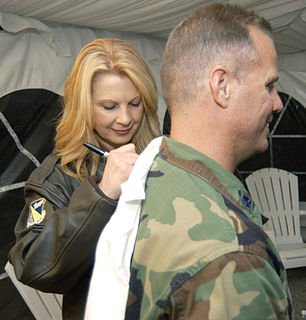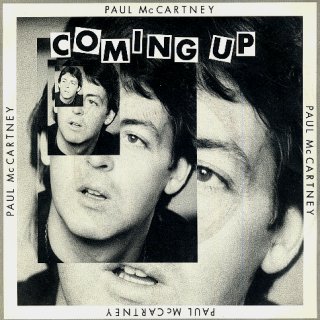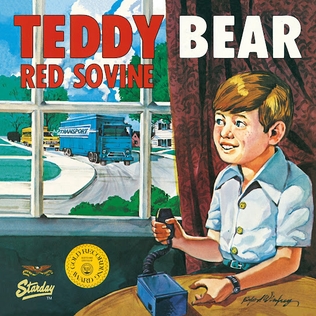
Norma Jean Beasler is an American country music singer who was a member of The Porter Wagoner Show from 1961–1967. She had 13 country singles in Billboard's Country Top 40 between 1963 and 1968, recorded twenty albums for RCA Victor between 1964 and 1973, received two Grammy nominations, and was a Grand Ole Opry member for several years.

Patricia Lee Ramey, known professionally as Patty Loveless, is an American country music singer. Since emerging on the country music scene in late 1986 with her first (self-titled) album, Loveless has been one of the most popular female singers of neotraditional country. She also recorded albums in the country pop and bluegrass genres. Loveless was born in Pikeville, Kentucky, and raised in Elkhorn City, Kentucky, and Louisville, Kentucky. She rose to stardom thanks to her blend of honky tonk and country-rock and a plaintive, emotional ballad style. Throughout her career, Loveless has sold 15 million albums worldwide.

"You Don't Know Me" is a song written by Cindy Walker based on a title and storyline given to her by Eddy Arnold in 1955. "You Don't Know Me" was first recorded by Arnold that year and released as a single on April 21, 1956 on RCA Victor. The best-selling version of the song is by Ray Charles, who took it to #2 on the Billboard Hot 100 chart in 1962, after releasing the song on his #1 album Modern Sounds in Country and Western Music. The first version of the song to make the Billboard charts was by Jerry Vale in 1956, peaking at #14 on the pop chart. Arnold's version charted two months later, released as an RCA Victor single, 47-6502, backed with "The Rockin' Mockin' Bird", which reached #10 on the Billboard country chart. Cash Box magazine, which combined all best-selling versions at one position, included a version by Carmen McRae that never appeared in the Billboard Top 100 Sides listing.

"Sixteen Tons" is a song written by Merle Travis about a coal miner, based on life in mines in Muhlenberg County, Kentucky. Travis first recorded the song at the Radio Recorders Studio B in Hollywood, California, on August 8, 1946. Cliffie Stone played bass on the recording. It was first released in July 1947 by Capitol on Travis's album Folk Songs of the Hills. The song became a gold record.

"I Can't Stop Loving You" is a popular song written and composed by country singer, songwriter, and musician Don Gibson, who first recorded it on December 30, 1957, for RCA Victor Records. It was released in 1958 as the B-side of "Oh, Lonesome Me", becoming a double-sided country hit single. At the time of Gibson's death in 2003, the song had been recorded by more than 700 artists.
What Would You Do may refer to:

"Coming Up" is a song written and performed by English musician Paul McCartney, released as the opening track on his 1980 solo album McCartney II. Like other songs on the album, the song has a synthesised sound, featuring sped-up vocals created by using a vari-speed tape machine. McCartney played all instruments and shared vocal harmonies with wife Linda McCartney.
Woodrow Wilson "Red" Sovine was an American country music singer and songwriter associated with truck driving songs, particularly those recited as narratives but set to music. His most noted examples are "Giddyup Go" (1965) and "Teddy Bear" (1976), both of which topped the Billboard Hot Country Songs chart.

All I Can Do is the seventeenth solo studio album by American singer-songwriter Dolly Parton. It was released on August 16, 1976, by RCA Victor. The album was co-produced by Parton and Porter Wagoner and would be the last of Parton's solo albums to have any involvement from Wagoner. It was nominated for Best Country Vocal Performance, Female at the 19th Annual Grammy Awards. The album spawned three singles: "Hey, Lucky Lady", "All I Can Do", and "Shattered Image".

"Save Your Kisses for Me" was the winning song of the Eurovision Song Contest 1976, performed for the United Kingdom by Brotherhood of Man in The Hague, Netherlands. The lyrics and music were written by Tony Hiller, Lee Sheriden, and Martin Lee, the latter two being members of the band. The song became a worldwide hit, reaching No. 1 in many countries, including the UK, where it became the biggest-selling song of the year. Overall, it remains one of the biggest-selling Eurovision winners ever, and the biggest such seller in the UK. The song's melody bears a strong resemblance to "Tie a Yellow Ribbon Round The Ole Oak Tree", released by Tony Orlando & Dawn in 1973. The Brotherhood of Man covered that song on an album in 2006.
A recitation song or "recitation" as it is more commonly called, is a spoken narrative of a song, generally with a sentimental theme. Such numbers were quite popular in country music from the 1930s into the 1960s, although there were only few in number. While they almost disappeared in the 1970s, that decade saw several of the biggest recitation songs of all time: Red Sovine's sentimental ode to an ill child "Teddy Bear" and C. W. McCall's truck-driving saga "Convoy", both songs hitting number one on the country charts and even crossing over into the pop market. McCall, who did not sing, became a popular country star in the 1970s with a string of recitations, most of them comic, although his last hit, 1977's "Roses for Mama" was a sentimental tale in the best Sovine tradition. A number of Elvis Presley's and Johnny Cash's songs, as well as a number of songs from other genres of popular music and a number of gospel songs, also featured recitations.

Grand Ole Opry's New Star is the debut studio album released by George Jones in November 1956 with Starday Records. Produced by Jones' manager Pappy Daily, the album was recorded during early sessions in 1954, throughout 1955, and other sessions in 1956. It is also the first album to be released on the Starday label, a label only four years old.

"Teddy Bear" is a song co-written and recorded by American country music singer Red Sovine. It was released in June 1976 as the title track to Sovine's album of the same name.
"A Dear John Letter", or "Dear John" is the name of a popular country music song, written by Billy Barton, Fuzzy Owen and Lewis Talley. It was popularized by Ferlin Husky and Jean Shepard, and was a crossover country-pop hit in 1953.

"Why Me" is an American country and gospel song written and recorded by American country music singer and songwriter Kris Kristofferson.

"Six Days on the Road" is an American song written by Earl Green and Muscle Shoals Sound Studio songwriter Carl Montgomery, made famous by country music singer Dave Dudley. The song was initially recorded by Paul Davis and released in 1961 on the Bulletin label. In 1963, the song became a major hit when released by Dudley, peaking at #2 on the Billboard Hot Country Songs chart and cracking the Top 40 (#32) on the Hot 100, leading to it being hailed as the definitive celebration of the American truck driver.
"Honky-Tonk Man" is a song co-written and recorded by American country music singer Johnny Horton. It was released in March 1956 as his debut single on Columbia Records, and the album of the same name reaching number 9 on the U.S. country singles charts. Horton re-released the song six years later, taking it to number 11 on the same chart.

"Why Baby Why" is the title of a country music song co-written and originally recorded by George Jones. Released in late 1955 on Starday Records and produced by Starday co-founder and Jones' manager Pappy Daily, it peaked at 4 on the Billboard country charts that year. It was Jones' first chart single, following several unsuccessful singles released during the prior year on Starday.

I'm Coming Home is an album by American pop singer Johnny Mathis that was released on September 21, 1973, by Columbia Records and was mainly composed of material written by the songwriting team of its producer, Thom Bell, and Linda Creed. Unlike several of the Mathis albums before it, I'm Coming Home relied primarily on new songs and included only two covers of established chart hits, both of which were by The Stylistics.
"Missing You" is a song written by Red Sovine and Dale Noe, which was originally released by Red Sovine in 1955, and was later a hit single for Webb Pierce in 1957, Ray Peterson in 1961, and was posthumously a hit for Jim Reeves in 1972. Sovine's version was the B-side of Red Sovine and Webb Pierce's hit single "Why Baby Why".













